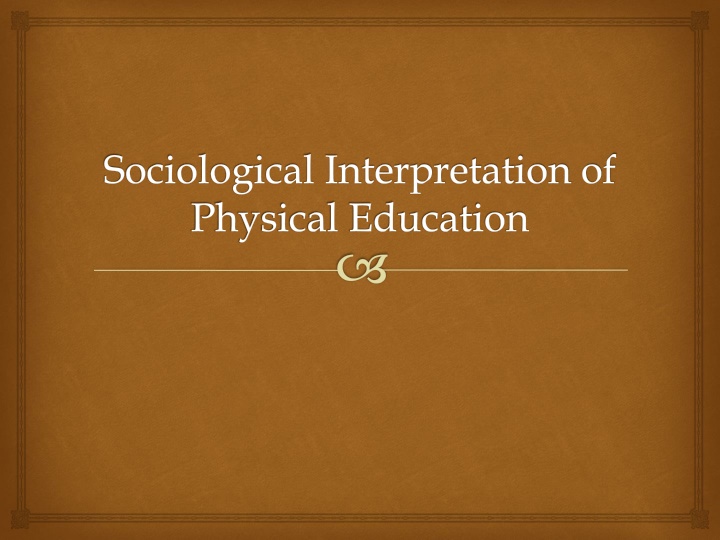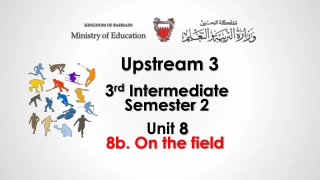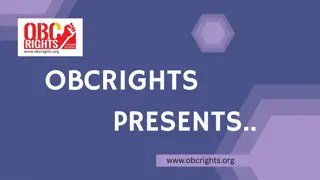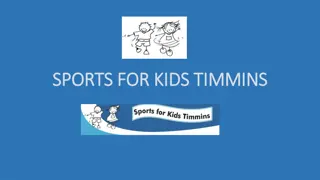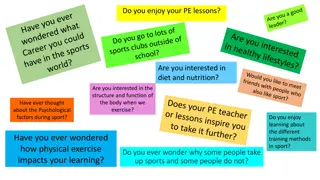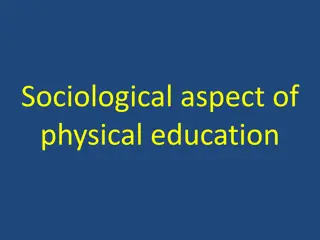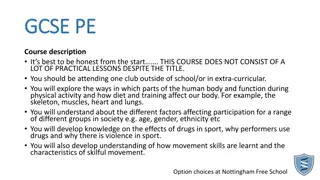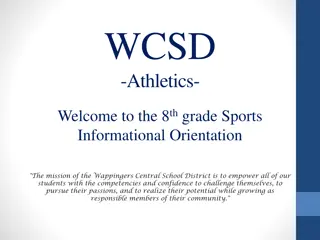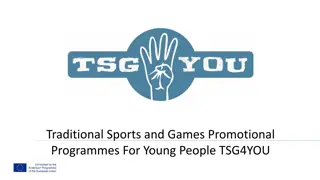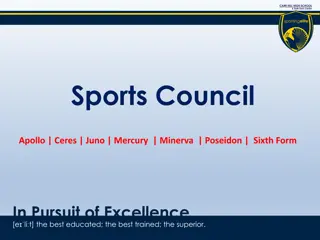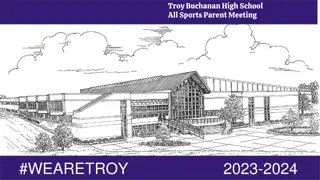Social Benefits of Physical Education and Sports
The sociological interpretation of physical education emphasizes the social benefits that come from participating in sports, such as learning teamwork, sportsmanship, leadership qualities, communication skills, and mutual understanding. These benefits extend beyond the physical aspects of sports and play a crucial role in personal development. Through sports, individuals develop essential social skills that help them succeed in various real-world situations.
Download Presentation

Please find below an Image/Link to download the presentation.
The content on the website is provided AS IS for your information and personal use only. It may not be sold, licensed, or shared on other websites without obtaining consent from the author.If you encounter any issues during the download, it is possible that the publisher has removed the file from their server.
You are allowed to download the files provided on this website for personal or commercial use, subject to the condition that they are used lawfully. All files are the property of their respective owners.
The content on the website is provided AS IS for your information and personal use only. It may not be sold, licensed, or shared on other websites without obtaining consent from the author.
E N D
Presentation Transcript
Sociological Interpretation of Physical Education
Socialization through Sports In addition to these physical benefits, many social benefits result from participation in sports. Participation in sports provides opportunities to learn teamwork. Playing by the rules and overcoming adversity helps youths learn qualities of good sportsmanship responsibility. Time management and good organizational skills must be developed to achieve both athletic and academic success. These benefits transfer to everyday situations, providing social skills that allow you to succeed in the real world. and personal
Leadership quality Every sports team has a leader, sometimes it is a coach, other times it is a veteran player. Either way, they are powerful guides able to motivate a group of people to perform beyond their current capabilities. This happens in individual sports as well, often leaning on a coach or trainer to help guide and motivate towards success.
Communication Physical benefits of sport are well known and very important, but the social part attracts players in practicing a sport. They are happy that they can meet their friends and spend time with them outside insitiute , and this is more important than knowing they are physically active. Social interaction through team sport teaches young people toassociate with their friends, solve communicate and socialize better with their colleagues. and prevent conflicts,
Mutual Understanding One of those skills being developed through sport is teamwork and can be greatly applied to other areas in the child's life, such as school, home, and eventually at work. Teamwork can be defined as individuals working together to achieve a common goal
